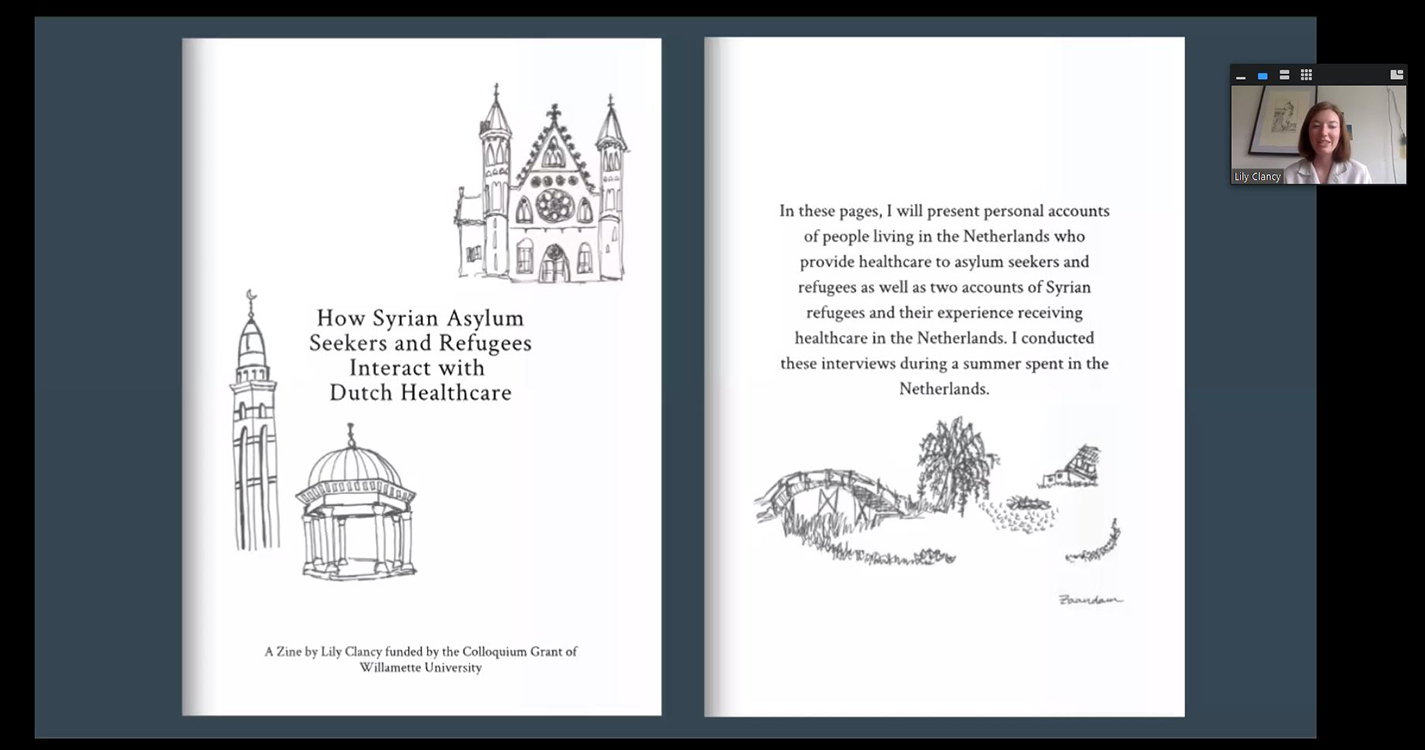The innovative spirit of Willamette University students shone a bit more than usual last Wednesday.
For the first time in 20 years, Student Scholarship Recognition Day required all participants to adapt their research for online presentation.
On April 22, more than 100 scholars logged in to Zoom to present work ranging from “Attempts to Enrich for Asgard Archaea through Anaerobic Culturing of Estuarine Sediment” to “Down with the Sickness: Interpreting American political responses to international epidemics” to “What is A Video Game?” Presentations were based on independent research or class projects, senior papers, creative projects and performances.
Each one lasted about 15 minutes as students took turns sharing detailed posters, graphs and in some cases, art and original music. The scholarship luncheon was also held virtually with endowed scholarship donors.
Read the complete list of student work.
SSRD Presentation examples
How Syrian Asylum Seekers and Refugees Interact with Dutch Healthcare
by Lily Clancy ’22
This presentation focuses on the specific experiences of Syrian asylum seekers and refugees living in the Netherlands and their interaction with the Dutch healthcare system. As well as interviewing Syrian refugees, I also interviewed healthcare providers who work closely with these populations. I will be showing pages of the online zine I created and pointing out certain quotes from the interviews conducted to contextualize the current state of receiving healthcare as an asylum seeker. Some specific things I will discuss include cultural differences around medication, religious practices that influence healthcare, and language barriers. (Advisor: Sarah Kirk)
Down with the Sickness: Interpreting American political responses to international epidemics
by Megan Pratt ’20
In the midst of the COVID-19 pandemic, it has become obvious to most that certain deficiencies plague our pandemic response schema. This research investigates the origins of the current administrative framework that guides national responses to international epidemics and pandemics. It considers the role that "securitization" (the process by which national security dominates public health as a guiding impetus for action), as a guiding force in shaping these responses. How can we characterize the balance between public health and national security concerns in national responses to international epidemics, and what, if anything, are we missing thanks to this construction? (Advisor: Greg Felker)
Algorithmic music: using rules and random numbers to compose songs
by Caden Kesey ’20
This presentation demonstrates how music can be generated without human intervention given simple limitations and random numbers, allowing unique songs to be created in seconds. It will cover algorithms that can be used for creating rock and pop style songs in the programming language C. These songs will be played back using the visual programming language Max, so that compositions can be heard using samples of acoustic instruments. This presentation will demonstrate that using these methods can produce a virtually endless amount of unique songs. (Advisor: Haiyan Cheng)


